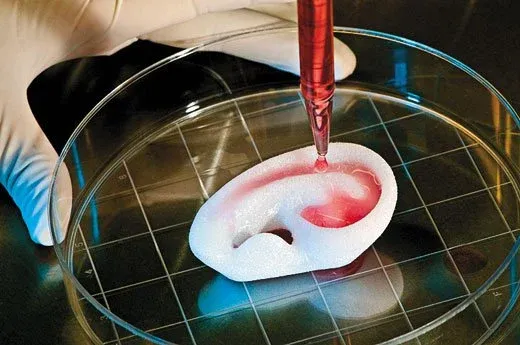
The main aspect of the documentary, "They Say It Can't Be Done", that stood out to me the most was the fact that entrepreneurs and innovators are often help back from performing to their best ability and are not allowed enough freedom. In the documentary, the innovators come up with the idea of lab-grown organs, which are created to to stop the issue of long organ donation lists. The purpose of the lab-grown organs was to take cells from the person being treated and create an organ with those cells to give back to that person. It saves others from having to give up their own organs and it saves a lot of time. The innovators with this idea are not given much freedom to test the organs out because of regulations. I believe this is keeping innovators from helping society as much as possible because their products are having to go through long regulation processes. "If you are suffering from cirrhosis of the liver and your liver is going to fail in the next three months and you could try an experiment lab-grown liver, but the regulatory approval will take nine months, why not waive the regulatory approval and allow that person to have the new liver?" (24:55). I think this is very interesting because the whole idea of regulations is to fix problems in society but because of regulations, many issues are made worse. They don't allow for new ideas to be put to the test when they could have saved lives. It is almost ironic that the regulatory system, which is made to keep people safe, is actually keeping these innovators from making products that could save lives. It is important that society is offered new ideas and products because our world is constantly changing so we constantly need newer and better products. Something in the documentary that goes along with what we talked about in class and in the readings is disruptive innovation. "A disruptive innovation makes previous innovations obsolete" (7:52). Schumpeter's theory of creative destruction, which we talked about in the readings, is very evident here. The freedom aspect of entrepreneurs affects society some times in a negative way because they are having to face a lot of change by taking current ways of doing things and creating newer and more efficient ways of doing things. I believe that society doesn't really support entrepreneurs being allowed more freedom because they are afraid of change. They are so used to the regulations that they don't want to try anything that hasn't gone through the regulatory process, even though what they really want is just for their issues to be resolved. "They don't necessarily want regulations. They want problems fixed" (5:29). I believe that if the society was more open to innovators and entrepreneurs being allowed to try out their new innovations, they would be able to save more lives than we would think. The interaction between the freedom aspect of entrepreneurship and society is not very healthy. I think that if society was better at accepting change, then entrepreneurs would be able to do what they do best and create new innovations for the world. "What the doomsayers tend to underestimate is human creativity" (1:18). I believe that acceptance of more freedom for entrepreneurs and innovators from society could change the world.